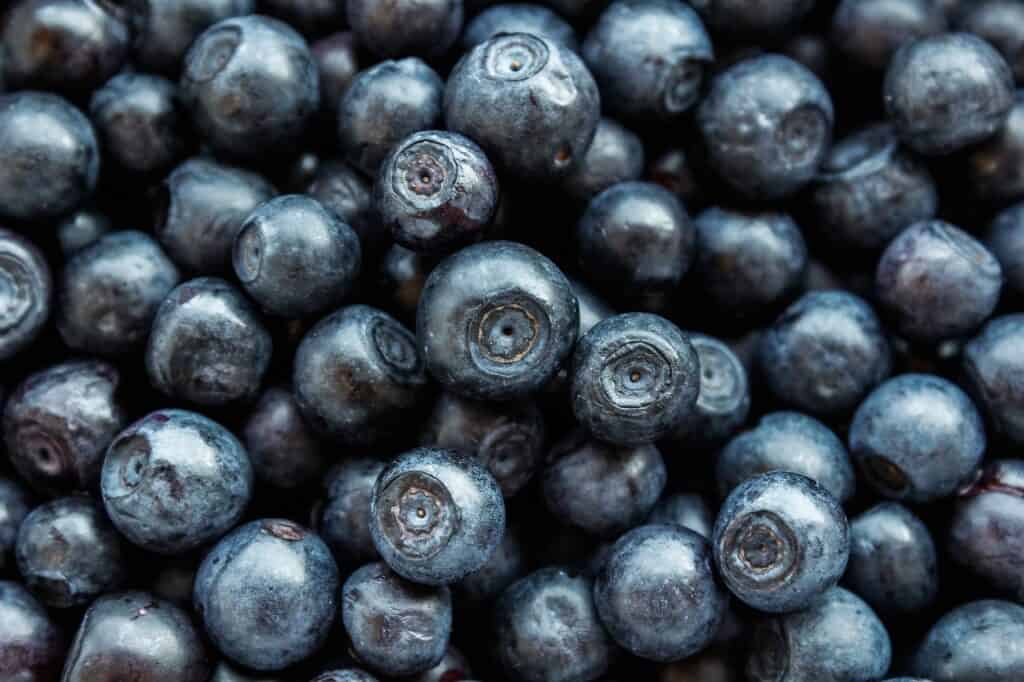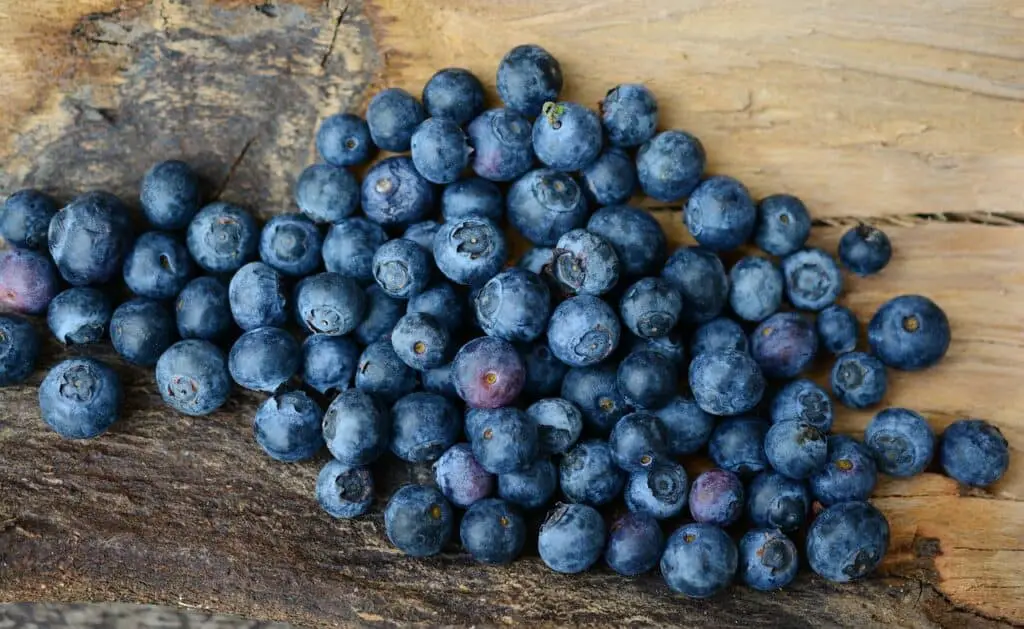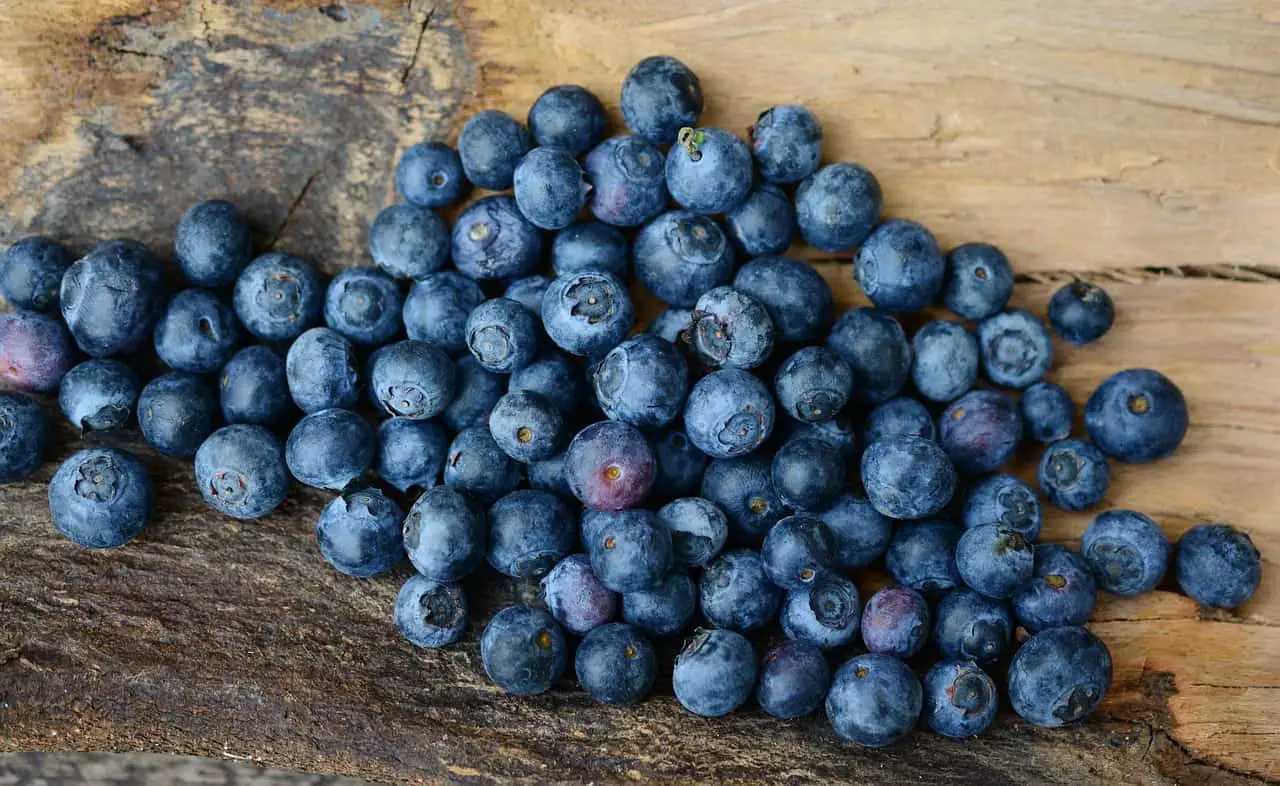The notion that blueberries might carry a scent reminiscent of fish has puzzled many. While the natural aroma of blueberries is typically sweet and fruity, certain factors can contribute to a perceived fishy smell. One possible explanation is the presence of specific compounds in blueberries that, when combined with individual olfactory sensitivities, may lead to this unexpected association.
Blueberries (Vaccinium spp.) are small, round, and incredibly versatile berries that belong to the Vaccinium genus. These delightful fruits come in various species, including highbush, lowbush, and rabbiteye blueberries, each offering its unique characteristics.
Key Features
- Appearance: Blueberries range in size from 5 to 16 millimeters and can be found in shades of blue or purple, depending on the variety. They boast a smooth skin with a waxy bloom, giving them a distinct appearance.
- Flavor Profile: Blueberries are renowned for their sweet and slightly tart flavor. Their taste makes them a popular choice in a wide range of culinary applications, from desserts and breakfast dishes to salads and snacks.
- Nutritional Value: These berries are a powerhouse of nutrients, packed with antioxidants, vitamins C and K, manganese, and dietary fiber. Their vibrant color is attributed to anthocyanins, potent antioxidants with potential health benefits.

What Happens if You Eat Bad Blueberries
Consuming bad blueberries can lead to various adverse effects. Spoiled blueberries may harbor harmful bacteria or molds, causing foodborne illnesses. Symptoms can range from stomach cramps and nausea to more severe issues. It’s crucial to inspect blueberries for signs of spoilage, such as an off-putting odor, mold growth, or an unusual texture. When in doubt, it’s safer to discard questionable berries to avoid potential health risks.
Why Do My Blueberries Taste Like Chemicals
The perception of a chemical taste in blueberries could be attributed to several factors. Pesticide residue, exposure to contaminants during cultivation, or even the use of certain fertilizers may contribute to this unwanted flavor. Additionally, improper storage or handling can introduce chemicals to the berries. Ensuring that blueberries come from reputable sources and washing them thoroughly before consumption can mitigate the risk of encountering a chemical taste.
FAQ
Can Blueberries Cause Allergic Reactions
While rare, some individuals may experience allergic reactions to blueberries. Allergic responses can include itching, swelling, hives, or, in severe cases, difficulty breathing. If you suspect an allergy to blueberries, consult with a healthcare professional for proper evaluation and guidance. It’s essential to be aware of potential allergens and seek medical advice if any adverse reactions occur after consuming blueberries.
How Should Blueberries Be Washed Before Consumption
Washing blueberries before consumption is crucial to remove potential pesticides, dirt, or contaminants. To wash blueberries, place them in a colander and rinse them under cool, running water. Gently shake the colander to ensure thorough cleaning. Pat them dry with a paper towel or allow them to air dry before enjoying. This simple practice enhances the safety and enjoyment of these delicious berries.

What Do Bad Blueberries Taste Like
Identifying bad blueberries is crucial for avoiding potential health issues. Bad blueberries may exhibit a sour or fermented taste, and the texture could become mushy. The presence of mold, an off-putting odor, or an unusual color are also indicators of spoilage. If blueberries taste overly bitter, acidic, or have an unpleasant aftertaste, it’s advisable to discard them. Trusting your senses and being attentive to any abnormalities in taste or appearance ensures a safe and enjoyable blueberry-eating experience.
Conclusion
In the intricate world of flavors and aromas, the occasional association of blueberries with unexpected scents like fish remains a fascinating phenomenon. While the natural essence of blueberries is a delightful sweetness, external factors and individual perceptions can contribute to diverse sensory encounters. Whether exploring the potential fishy aroma or navigating the realms of spoiled or chemically influenced blueberries, awareness and discernment are essential for a wholesome and enjoyable culinary experience.

